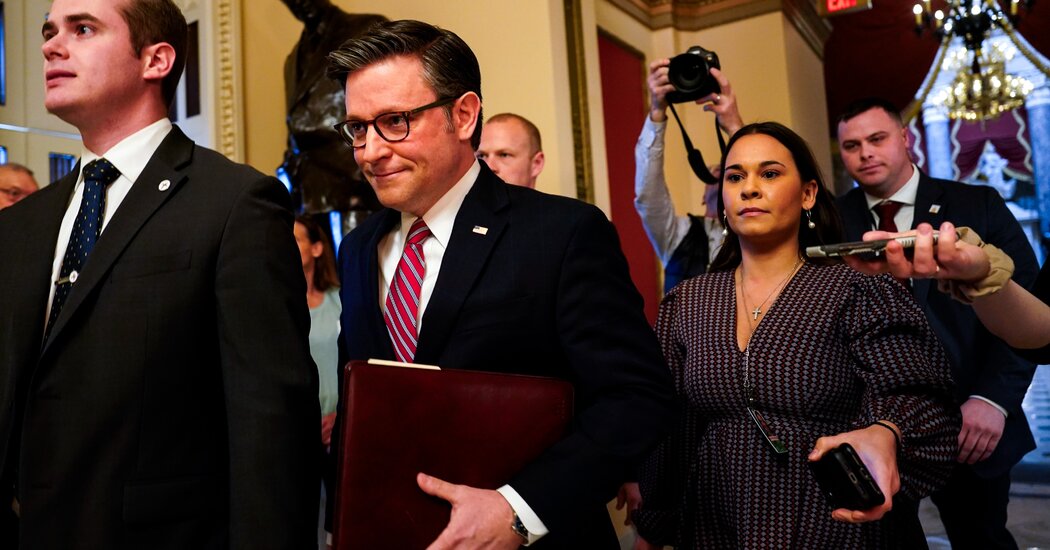Congress Passes $1.2 Trillion Spending Bill to Avert Shutdown
In the early hours of Saturday, Congress passed a $1.2 trillion spending bill to fund more than half of the government, effectively avoiding a shutdown. The Senate overwhelmingly voted in favor of the bill, with a 74-to-24 vote, and it was subsequently sent to President Biden's desk for approval [[1]].
Extraordinary Day on Capitol Hill
The passage of the spending bill followed an eventful day on Capitol Hill. It began with a bipartisan vote in the House to expedite the measure, which triggered a conservative revolt and even led to a Republican threatening to oust Speaker Mike Johnson from his position [[1]].
Intense Negotiations and Delay
After the House vote, there were intense negotiations and politically charged votes on proposed changes to the legislation demanded by Republicans. These negotiations caused a delay in the Senate action, pushing it more than 12 hours after the House vote. The delay highlighted the challenges faced during spending negotiations and the prolonged nature of the talks, which are now expected to fund the government through the end of the fiscal year, September 30 [[1]].
Bipartisan Support and Opposition
The spending bill faced opposition from conservative Republicans who were unhappy with the bipartisan agreement to maintain federal funding for the Pentagon and Department of Homeland Security. Representative Marjorie Taylor Greene of Georgia even initiated a process to call for a vote to remove Speaker Mike Johnson. However, no other Republican publicly supported ousting Johnson, and Democrats indicated their willingness to protect him if faced with a GOP threat [[1]].
Provisions and Criticisms
The spending package, consisting of six spending bills, included provisions that were won by Republicans, such as funding for Border Patrol agents, additional detention beds, and a provision cutting off aid to a U.N. agency assisting Palestinians. It also increased funding for technology at the southern border while reducing funding for the State Department and foreign aid programs. However, conservatives criticized the bill for its price tag and certain allocations, such as funding for the new F.B.I. headquarters and L.G.B.T.Q. centers [[1]].
Achievements and Dissatisfaction
Speaker Mike Johnson highlighted the conservative policy wins achieved through the bill and the substantial cuts made while strengthening national defense. However, some conservatives expressed dissatisfaction, considering the legislation insufficiently conservative and pointing to the overall spending amount. Democrats, on the other hand, secured funding for federal child care, education programs, and cancer research [[1]].
In conclusion, Congress passed a $1.2 trillion spending bill to fund more than half of the government, averting a shutdown. The bill faced opposition and negotiations but ultimately received bipartisan support. It includes provisions favored by Republicans but also drew criticism from conservatives. Democrats secured funding for their priorities as well.





